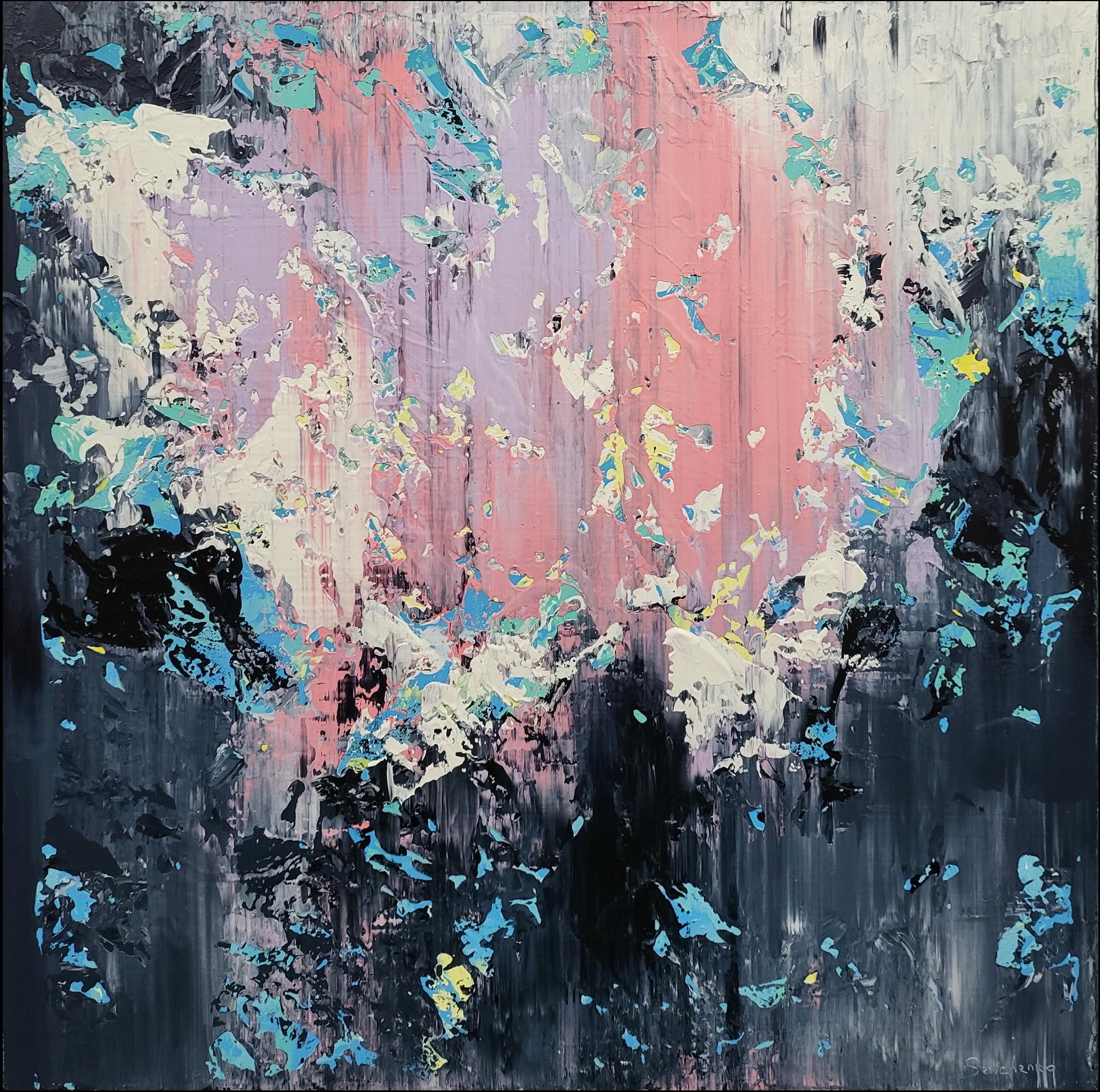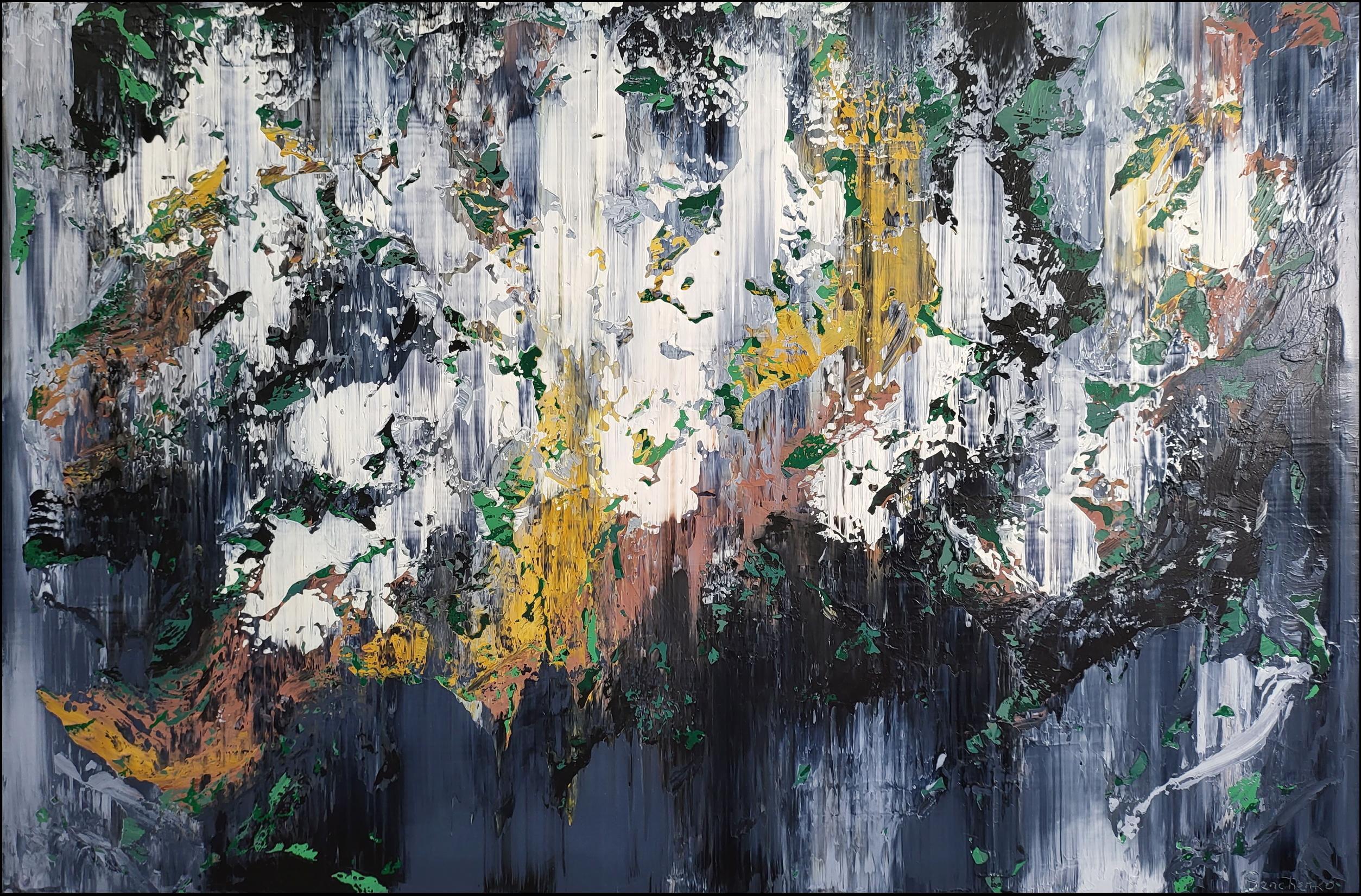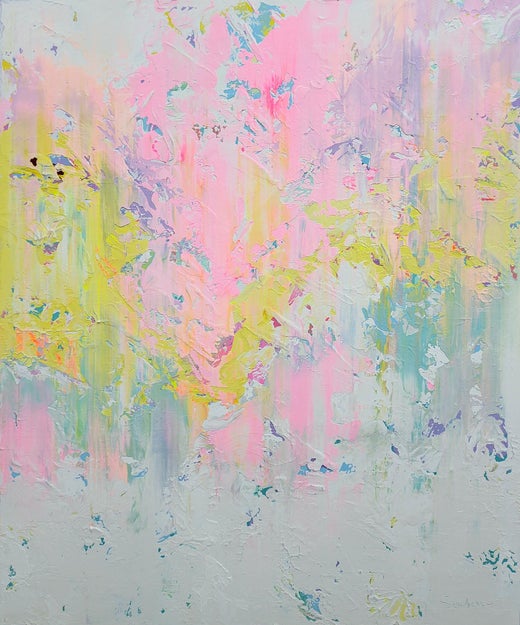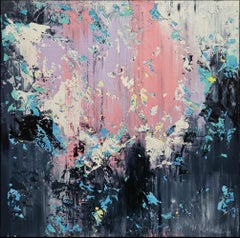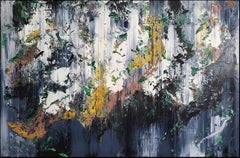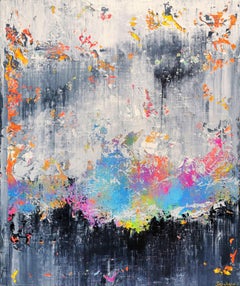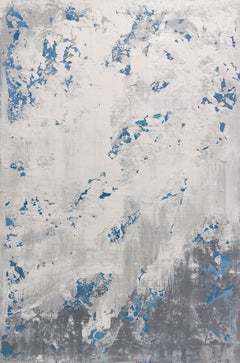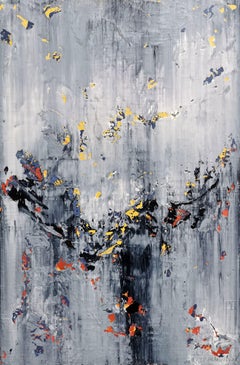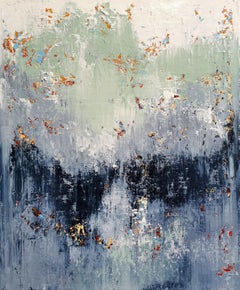Want more images or videos?
Request additional images or videos from the seller
1 of 14
Alex SenchenkoAbstract 23252023
2023
$1,815.91
$2,269.8820% Off
£1,360
£1,70020% Off
€1,573.74
€1,967.1720% Off
CA$2,558.69
CA$3,198.3720% Off
A$2,817.37
A$3,521.7120% Off
CHF 1,460.93
CHF 1,826.1620% Off
MX$33,365.36
MX$41,706.7020% Off
NOK 18,545.54
NOK 23,181.9320% Off
SEK 17,332.91
SEK 21,666.1420% Off
DKK 11,753.94
DKK 14,692.4220% Off
About the Item
There’s something different about the homes of creative people. They like to surround themselves with inspiring things, from unique tablecloths to the incredible paintings on the walls. Alex Senchenko’s Abstract 2325. can give your home that feeling of originality and finesse that every artist, and even those of us who aren’t so creatively inclined, needs.
Hand painted with acrylic on 100cm. x 100cm. canvas, this piece will steal the attention of the whole room. It will arrive with a certificate of authenticity, signed and dated by the artist, himself. Give your home the creative insight you need with a painting as lovely as it is effortless.
Painting Specifications:
Title: Abstract 2325 . (Available for immediate shipping).
Materials: canvas, hand painting with acryl colors
Height: 100 cm
Width: 100 cm
Depth: 4 cm
Painting Benefits:
Very original and modern feel and a really nice texture. Two coats of protective gloss varnish are applied to protect the painting from UV rays and dust. The sides of the canvas are painted so it's ready to hang.
- Creator:Alex Senchenko (1975)
- Creation Year:2023
- Dimensions:Height: 39.38 in (100 cm)Width: 39.38 in (100 cm)Depth: 1.58 in (4 cm)
- Medium:
- Movement & Style:
- Period:
- Condition:
- Gallery Location:Zofingen, CH
- Reference Number:1stDibs: LU2203212269202
Alex Senchenko is an artist based in the United Kingdom where he has exhibited his paintings. He describes his art as being a metaphor for his vision of life, "positive, dynamic, and simple". Through his compositions, Senchenko conveys a sense of minimalism combined intense colors that are prismatic and often architectural. He seeks the balance between a specific form and abstract elements employing acrylics and oils on canvas.
About the Seller
5.0
Platinum Seller
Premium sellers with a 4.7+ rating and 24-hour response times
Established in 2019
1stDibs seller since 2022
688 sales on 1stDibs
Typical response time: 2 hours
- ShippingRetrieving quote...Shipping from: Bolton, United Kingdom
- Return Policy
More From This Seller
View AllAbstract 2301
Located in Zofingen, AG
ARTIST : Alex Senchenko ©
Title : Abstract 2301 .
Technique: Acrylic & structure on canvas
100cm. x 100cm.
Original Painting on a 4cm Deep Canvas
Ready to hang
2023
----...
Category
2010s Abstract Expressionist Abstract Paintings
Materials
Acrylic
$1,602 Sale Price
20% Off
Abstract 2310
Located in Zofingen, AG
ARTIST : Alex Senchenko ©
Title : Abstract 2310 .
Technique: Acrylic & structure on canvas
100cm. x 100cm.
Original Painting on a 4cm Deep Canvas
Ready to hang
2023
----...
Category
2010s Abstract Expressionist Abstract Paintings
Materials
Acrylic
$1,602 Sale Price
20% Off
Abstract 2305
Located in Zofingen, AG
Abstract 2305 - is original, authentic, and personally signed by the artist. Created using acrylic on canvas, a clear, gloss coating protects your cherished fine art investment from ...
Category
2010s Abstract Expressionist Abstract Paintings
Materials
Acrylic
$1,815 Sale Price
20% Off
Abstract 2330
Located in Zofingen, AG
There’s something ethereal, almost magical, about contemporary paintings. The incredible Expressionism bleeds through the canvas, transforming any room into an entirely new experienc...
Category
2010s Abstract Expressionist Abstract Paintings
Materials
Acrylic
Abstract 2306
Located in Zofingen, AG
Artist : Alex Senchenko © 2023
Title: Abstract 2306
47" x 39" ( 120cm. x 100cm. )
Professional Gallery Canvas, Acrylic Paints
Original Painting on...
Category
2010s Abstract Expressionist Abstract Paintings
Materials
Acrylic
$1,815 Sale Price
20% Off
Abstract 2322
Located in Zofingen, AG
Painting Features:
The original painted work with the texture in the brush strokes and the blending of true colors. Its dimensions of paint ebb and flow with wonderful motions for a ...
Category
2010s Abstract Expressionist Abstract Paintings
Materials
Acrylic
You May Also Like
Abstract 2122, Painting, Acrylic on Canvas
Located in Yardley, PA
There’s something different about the homes of creative people. They like to surround themselves with inspiring things, from unique tablecloths to the incredible paintings on the w...
Category
2010s Abstract Abstract Paintings
Materials
Acrylic
Abstract 2156, Painting, Acrylic on Canvas
Located in Yardley, PA
ARTIST : Alex Senchenko © Title : Abstract 2156 . Technique: Acrylic & structure on canvas 150cm. x 100cm. Original Painting on a 4cm Deep Canvas Ready to hang ...
Category
2010s Abstract Abstract Paintings
Materials
Acrylic
Abstract 2182, Painting, Acrylic on Canvas
Located in Yardley, PA
This is a one of a kind painting, an absolutely spontaneous, vibrant and unique creation by me, Alex Senchenko This high quality acrylic painting is done on gallery wrapped canvas...
Category
2010s Abstract Abstract Paintings
Materials
Acrylic
Abstract 2109, Painting, Acrylic on Canvas
Located in Yardley, PA
Abstract 2109 - painting is a powerful vision of Love’s vibration, Compassion’s strength, and Hope’s vitality. Woosh away your worries! Feel the exhilarating and mighty presenc...
Category
2010s Abstract Abstract Paintings
Materials
Acrylic
Abstract 2101, Painting, Acrylic on Canvas
Located in Yardley, PA
There’s something different about the homes of creative people. They like to surround themselves with inspiring things, from unique tablecloths to the incredible paintings on the w...
Category
2010s Abstract Abstract Paintings
Materials
Acrylic
Abstract 2185, Painting, Acrylic on Canvas
Located in Yardley, PA
There’s something ethereal, almost magical, about contemporary paintings. The incredible Expressionism bleeds through the canvas, transforming any room into an entirely new exper...
Category
2010s Abstract Abstract Paintings
Materials
Acrylic
More Ways To Browse
Vintage Newspapers
Bullet Hole
Cubist Woman
Domenick Capobianco
Family Abstract
Sherman Oaks
Underwater Oil Painting
Richard Green Gallery
Striped Abstract Painting
Water Mill
36 X 48 Art
Alice Was
Black Line Painting
Israel Abstract Painting
Soft Pastel Painting
A Hansens Painting
Gerard Oil Painting
Large Triptych
